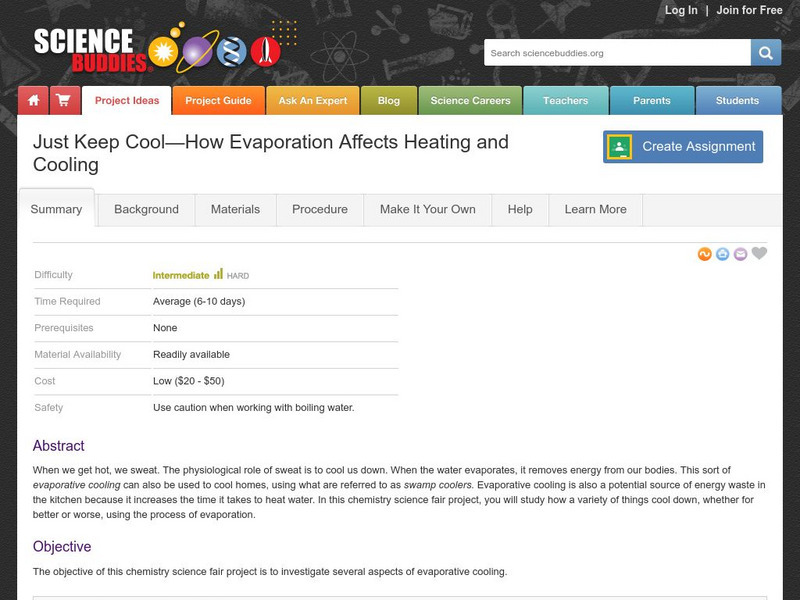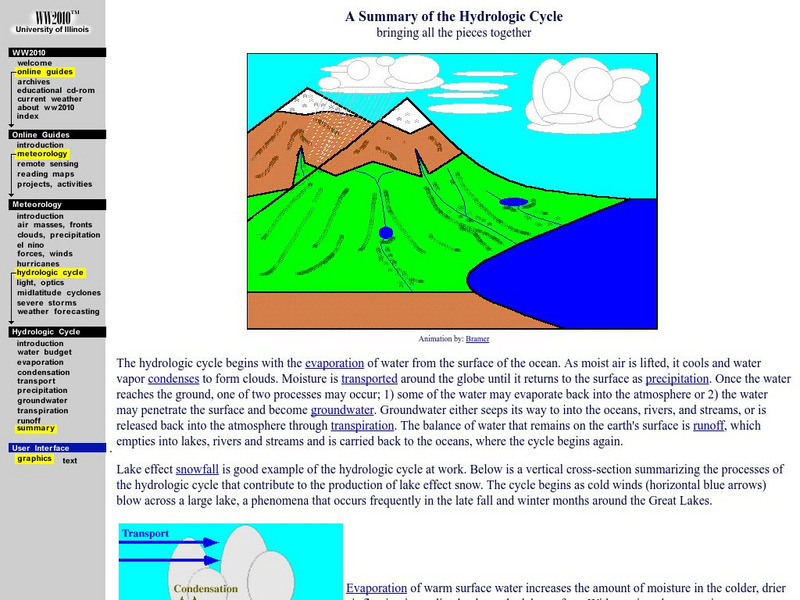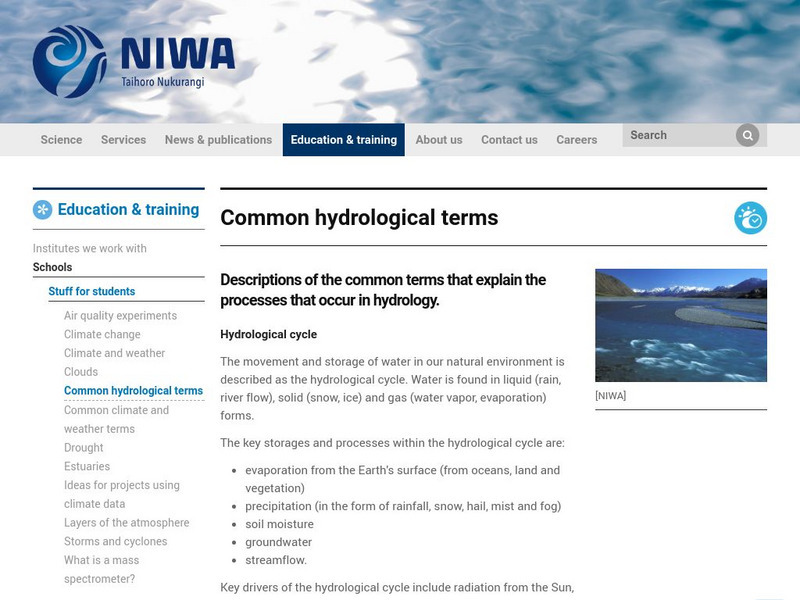University Corporation for Atmospheric Research
Ucar: The Water Cycle and Climate Change
Water moves from place to place through the water cycle, which is changing as climate changes. Learn how the water cycle is changing as global temperatures rise.
Science Buddies
Science Buddies: Make a Miniature Water Cycle Model
In this activity, you will investigate some of the processes that make water move in and out of the atmosphere by making a miniature water cycle model inside a plastic bag.
US Geological Survey
Usgs: The Water Cycle
Learn about the movement of water from Earth's surface to the atmosphere with this site. Site describes the water cycle in words and with a diagram. Also explored on the page is the distribution of Earth's global water supply.
Science Buddies
Science Buddies: Keep Your Candy Cool With the Power of Evaporation!
Did you know that your body has a built-in cooler? And it might not be what you think. Sweat is produced when you are hot, but its purpose is actually to cool your body as the water in it evaporates from your skin. In this science fair...
Science Struck
Science Struck: A Simple Guide to the Steps of the Water Cycle
The steps in the water cycle and the processes that occur are explained in this resource.
American Geosciences Institute
American Geosciences Institute: Earth Science Week: Water: A Never Ending Story
Students carry out a number of activities that demonstrate the concepts of evaporation, condensation, precipitation, and soil moisture and runoff. Then students construct a terrarium as a way to observe the water cycle. Immediately...
US Environmental Protection Agency
Epa: The Water Cycle [Pdf]
An illustrated diagram of the water cycle that students can use for study.
Science Struck
Science Struck: Water Cycle: An Easy Explanation for Kids
Provides a simple explanation of the water cycle by describing four main stages - evaporation, condensation, precipitation, and collection. Includes three project ideas and some interesting facts.
Science Buddies
Science Buddies: Just Keep Cool How Evaporation Affects Heating and Cooling
When we get hot, we sweat. The physiological role of sweat is to cool us down. When the water evaporates, it removes energy from our bodies. This sort of evaporative cooling can also be used to cool homes, using what are referred to as...
PBS
Pbs Learning Media: Ways of Watersheds
Learn about the four phases of the water cycle, the ways in which watersheds are crucial to healthy water, and the best ways to manage local watersheds with this interactive lesson.
US Geological Survey
Usgs: How Much Water Is There on (And In) the Earth?
The USGS gives an overview of the amount of water on Earth and where it is located. It gives a few interesting facts about the Earth's supply of water. Click Home to access the site in Spanish.
University of Illinois
University of Illinois Urbana Champaign: A Summary of the Hydrologic Cycle
Animation and text explain the water--or hydrologic--cycle, which is the process that water undergoes in nature.
NOAA
Noaa: National Weather Service: Simplified Hydrologic Cycle
The National Weather Service offers information on the processes that make up the water (hydrologic) cycle, including evaporation and transpiration, precipitation, run-off, infiltration, and percolation. Has a good illustration and...
Other
Niwa: Common Hydrological Terms
A glossary of terms that describe the processes that occur in hydrology. Glossary explains evaporation, precipitation, soil moisture, groundwater, and stream flow.
American Geosciences Institute
American Geosciences Institute: Evaporation and Condensation
A concise explanation of the difference between evaporation and condensation.



![Epa: The Water Cycle [Pdf] Graphic Epa: The Water Cycle [Pdf] Graphic](https://content.lessonplanet.com/knovation/original/42176-ac4345d9392f3783430ed3628fd17cec.jpg?1661261553)



